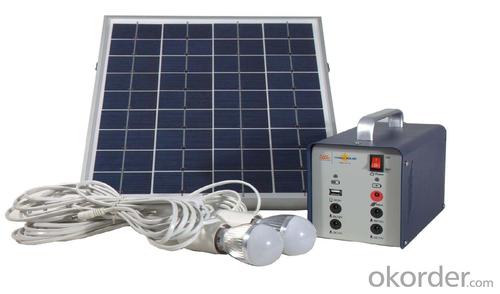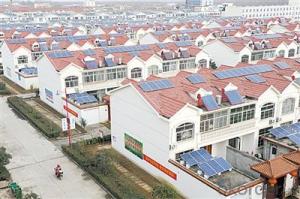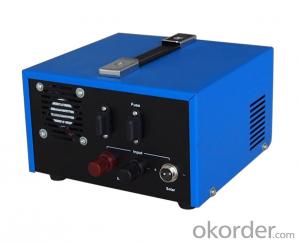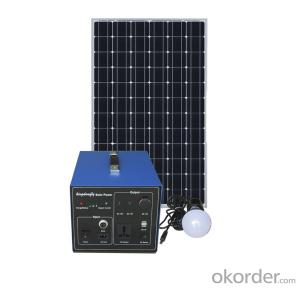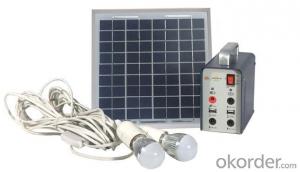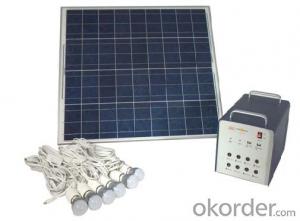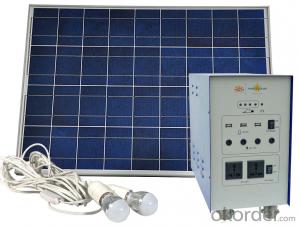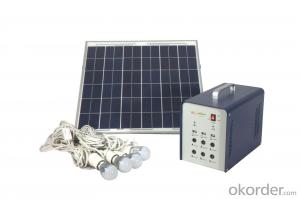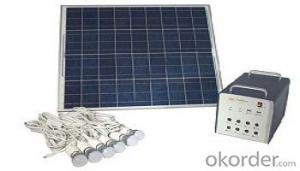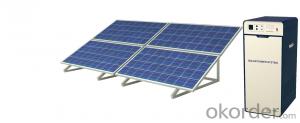Solar Energy Systems Limited Home Off-Grid Solar Power System DC Lighting JS-SPS-15
- Loading Port:
- Tianjin
- Payment Terms:
- TT OR LC
- Min Order Qty:
- 10 set
- Supply Capability:
- 10000 set/month
OKorder Service Pledge
Quality Product, Order Online Tracking, Timely Delivery
OKorder Financial Service
Credit Rating, Credit Services, Credit Purchasing
You Might Also Like
Off-grid Solar Power System
General Introduction
Solar power system provides alternating current and direct current, which is produced by the modules transforming solar power into power, to home lighting, household appliance and other DC appliance, such as cell phone and laptop.
Solar power system is widely used in area lack of power, for example house power supplying, monitoring, communication base, fire prevention in forest area, pasture and meadow, aquaculture etc.
We are dedicated to provide high quality off-grid PV products and systems to customers and has received a series of certificate, including ISO9001, TUV, UL, CE, CQC and RoHS.
Solar DC Lighting System
Multiple protection system, safe and reliable performance.
Integrated and portable design, easy operation.
DC5V, DC12V, AC220V output, wide range application.
Clean engergy, cycle use.
General Introduction
Solar power system provides alternating current and direct current, which is produced by the modules transforming solar power into power, to home lighting, household appliance and other DC appliance, such as cell phone and laptop.
Solar power system is widely used in area lack of power, for example house power supplying, monitoring, communication base, fire prevention in forest area, pasture and meadow, aquaculture etc.
We are dedicated to provide high quality off-grid PV products and systems to customers and has received a series of certificate, including ISO9001, TUV, UL, CE, CQC and RoHS.
Solar DC Lighting System
Multiple protection system, safe and reliable performance.
Integrated and portable design, easy operation.
DC5V, DC12V, AC220V output, wide range application.
Clean engergy, cycle use.
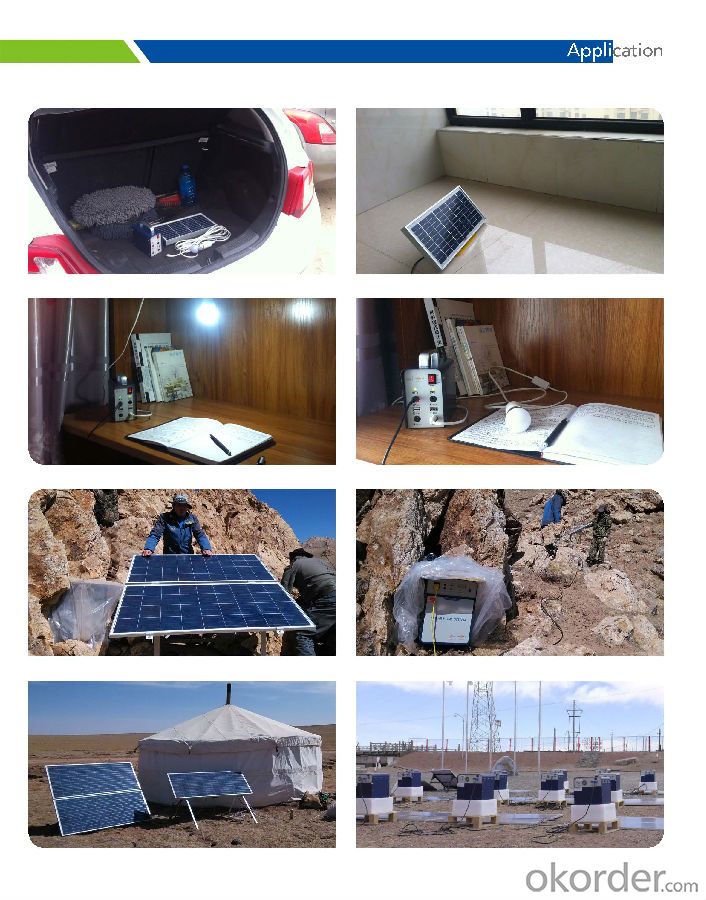
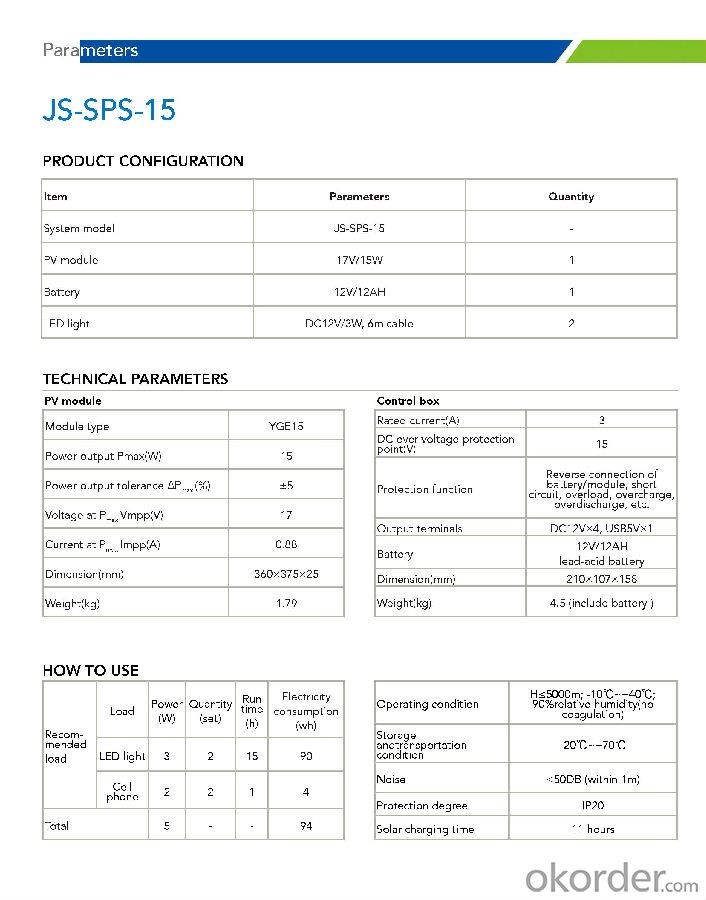
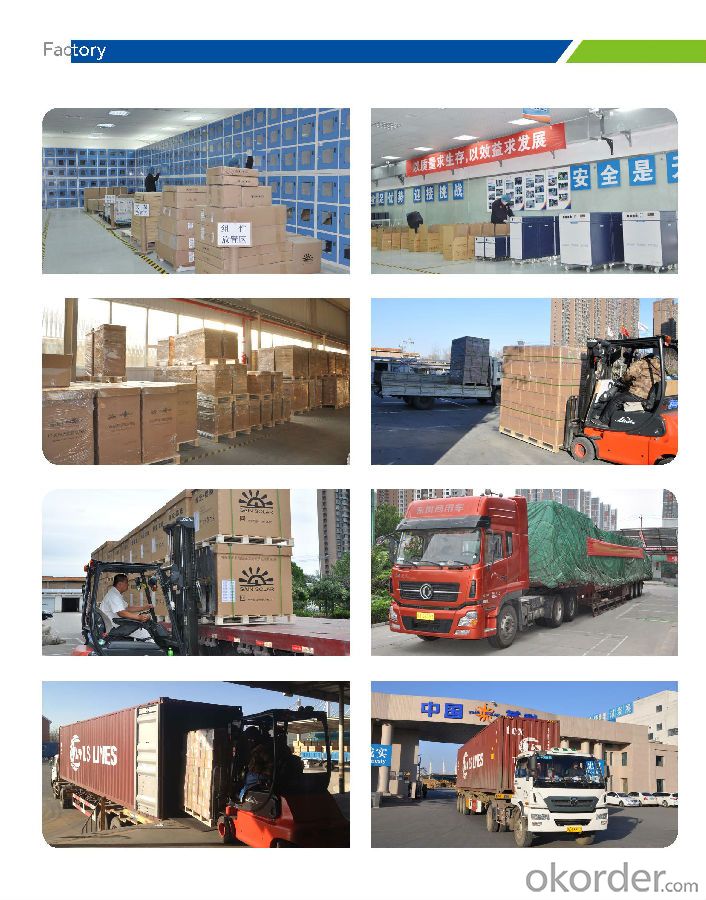
- Q: How does the efficiency of solar panels vary based on the temperature?
- The efficiency of solar panels can vary based on the temperature. Generally, solar panels operate more efficiently in cooler temperatures, while their efficiency decreases as the temperature rises. This is due to the nature of the materials used in solar panels, particularly the semiconductor materials like silicon. When the temperature increases, the electrons in the semiconductor material gain more energy, leading to an increase in the voltage output of the solar panel. However, this increase in voltage does not proportionally increase the power output, resulting in a decrease in the overall efficiency. Additionally, higher temperatures can cause an increase in the resistance of the electrical conductors within the solar panel, leading to power losses and reduced efficiency. This is known as thermal losses. The increased resistance can hinder the flow of electric current, reducing the overall power output. Moreover, high temperatures can also lead to a phenomenon called the "thermal runaway effect," where the increase in temperature causes the solar panel's efficiency to decline rapidly. This can be particularly problematic in areas with hot climates or during heatwaves. To mitigate the negative effects of temperature on solar panel efficiency, some advanced solar panel designs incorporate cooling mechanisms. For example, some panels have built-in ventilation systems or are elevated to allow air to circulate below, helping to dissipate excess heat and maintain optimal operating temperatures. In conclusion, the efficiency of solar panels can vary based on the temperature. While they operate more efficiently in cooler temperatures, their efficiency decreases as the temperature rises due to increased resistance, thermal losses, and the thermal runaway effect. It is important to consider these factors while designing and installing solar panels to maximize their performance and output.
- Q: Do solar energy systems require specialized insurance?
- Specialized insurance is typically required for solar energy systems due to their nature as a significant investment and their susceptibility to various risks, including damage from natural disasters, theft, or system malfunctions. Standard homeowner's insurance policies may not offer sufficient coverage for these risks, making it prudent to obtain specialized insurance for solar energy systems. This insurance can cover expenses for repairs or replacements in case of damage or loss and also provide liability coverage for accidents or injuries related to the system. It is crucial to seek advice from insurance providers specializing in renewable energy systems to ensure that the unique requirements and risks associated with solar energy systems are adequately addressed.
- Q: How long do solar energy systems last?
- Solar energy systems typically have a lifespan of 25 to 30 years, with some components lasting even longer. However, regular maintenance and occasional replacements may be required to ensure optimal performance and efficiency throughout their lifetime.
- Q: Are there any fire risks associated with solar energy systems?
- Yes, there are some fire risks associated with solar energy systems, although they are rare. Potential fire risks can arise from faulty installation, damaged or degraded components, electrical malfunctions, or improper maintenance. However, with proper installation, regular inspections, and adherence to safety standards, these risks can be minimized and managed effectively.
- Q: How do solar energy systems impact the stability of the electrical grid?
- Solar energy systems can impact the stability of the electrical grid by adding variability to the power supply. The intermittent nature of solar energy, dependent on weather conditions and daylight availability, can result in fluctuations in power generation. However, with proper integration and grid management strategies, such as energy storage systems and smart grid technologies, these impacts can be minimized, and solar energy systems can contribute to a more stable and resilient electrical grid.
- Q: Can solar energy systems be used for industrial applications?
- Yes, solar energy systems can be used for industrial applications. Solar power can provide a sustainable and reliable source of energy for various industrial processes, such as manufacturing, heating, cooling, and powering machinery. By harnessing the sun's energy, businesses can reduce their dependence on fossil fuels, lower operating costs, and contribute to environmental sustainability.
- Q: Can a solar energy system be integrated with energy storage systems?
- Indeed, the integration of energy storage systems with solar energy systems is possible. This integration is gaining popularity and significance within the renewable energy industry. Energy storage systems, like batteries, offer the capability to store surplus energy produced by solar panels for later use, especially during times of low solar radiation or high energy demand. Consequently, this effectively addresses the intermittent nature of solar energy generation and ensures a consistent and reliable power supply. Combining solar energy systems with energy storage allows users to decrease their dependence on the traditional power grid, increase the consumption of solar energy, and even attain complete energy independence in certain cases. Furthermore, this integration plays a vital role in advancing sustainable and resilient energy systems. It facilitates the integration of renewable energy sources into the power grid and smoothens out fluctuations in energy supply and demand.
- Q: Can solar energy systems be used for emergency power backup?
- Yes, solar energy systems can be used for emergency power backup. Solar panels can generate electricity even during power outages, as long as they are connected to a battery storage system. This allows the stored energy to be used as a backup power source during emergencies or when the grid is down.
- Q: How do solar energy systems affect property values?
- Solar energy systems can have a positive impact on property values as they are considered desirable features by many homebuyers. Studies have shown that homes equipped with solar panels tend to sell faster and at higher prices compared to similar properties without solar systems. The potential for reduced energy costs, environmental benefits, and increased energy independence make solar energy systems an attractive investment, ultimately boosting property values.
- Q: How much electricity can a solar energy system generate?
- The amount of electricity a solar energy system can generate depends on various factors such as the size of the system, location, weather conditions, and efficiency of the solar panels. On average, a residential solar energy system can generate enough electricity to cover a significant portion of a household's energy needs, potentially even producing surplus energy that can be fed back into the grid. Commercial-scale solar energy systems can generate even larger amounts of electricity, powering entire buildings or even communities.
Send your message to us
Solar Energy Systems Limited Home Off-Grid Solar Power System DC Lighting JS-SPS-15
- Loading Port:
- Tianjin
- Payment Terms:
- TT OR LC
- Min Order Qty:
- 10 set
- Supply Capability:
- 10000 set/month
OKorder Service Pledge
Quality Product, Order Online Tracking, Timely Delivery
OKorder Financial Service
Credit Rating, Credit Services, Credit Purchasing
Similar products
Hot products
Hot Searches
Related keywords



